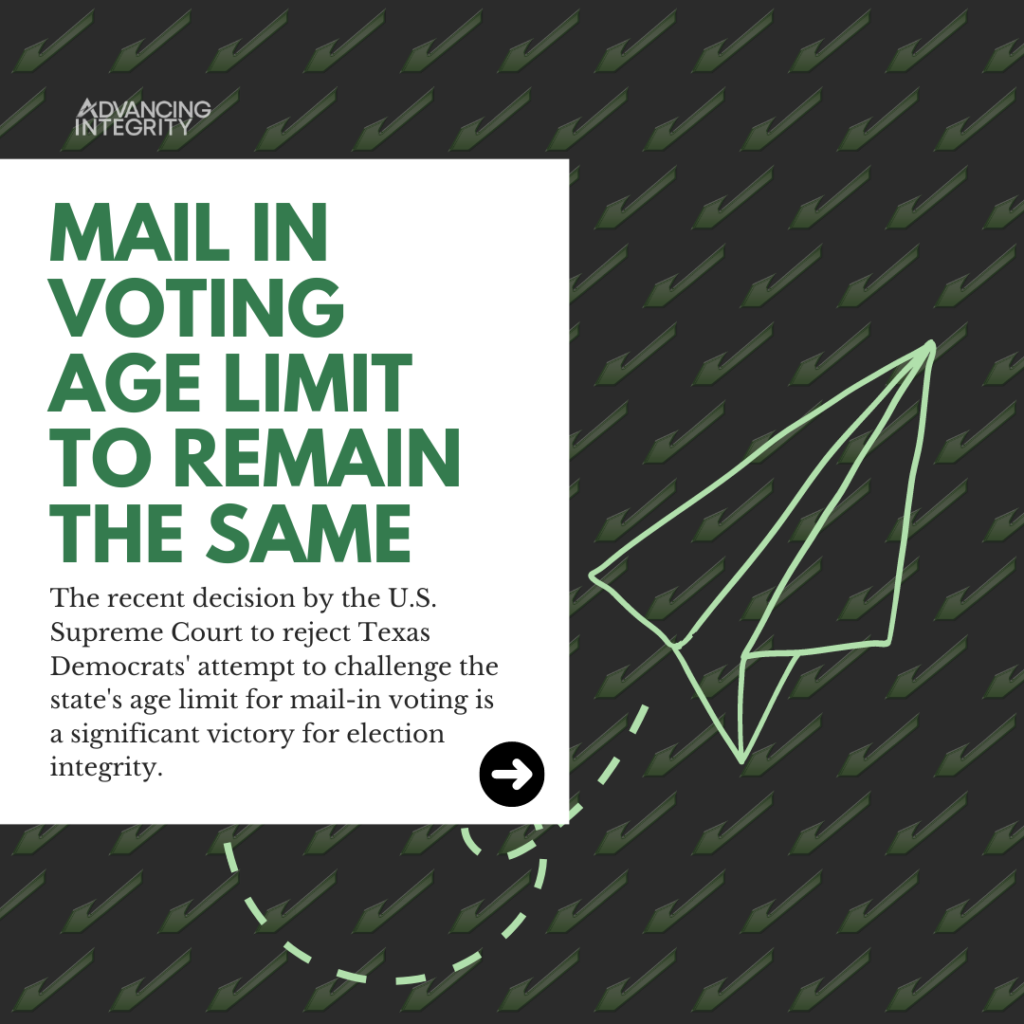The recent decision by the U.S. Supreme Court to reject Texas Democrats’ attempt to challenge the state’s age limit for mail-in voting is a significant victory for election integrity. By upholding the existing law, which limits mail-in voting to specific circumstances such as age, disability, or absence from the county during elections, the court has reinforced the importance of secure voting practices.
In their attempts to challenge the state’s election laws, Texas Democrats initially sought to leverage concerns surrounding the COVID-19 pandemic as justification for universal mail-in voting. However, their argument failed to sway the courts, which consistently upheld the existing regulations. Despite the unprecedented circumstances brought about by the pandemic, the courts recognized the importance of maintaining the integrity of the electoral process and upheld the state’s laws. This decision underscores the principle that while accommodations may be necessary in times of crisis, they must not compromise the fundamental principles of election security and integrity.
Voting in person on Election Day remains the safest and most secure way to cast a ballot. In-person voting ensures that each voter can directly participate in the electoral process, while also allowing for proper verification of identification and safeguards against potential fraud or abuse. The goal should be reducing, not increasing the number of Texans voting by mail, for their own protection.
Maintaining the integrity of our elections is essential for upholding the democratic process and ensuring that every vote counts. By upholding the state’s election laws, including restrictions on mail-in voting, the Supreme Court has taken a crucial step in preserving the integrity of our electoral system.

